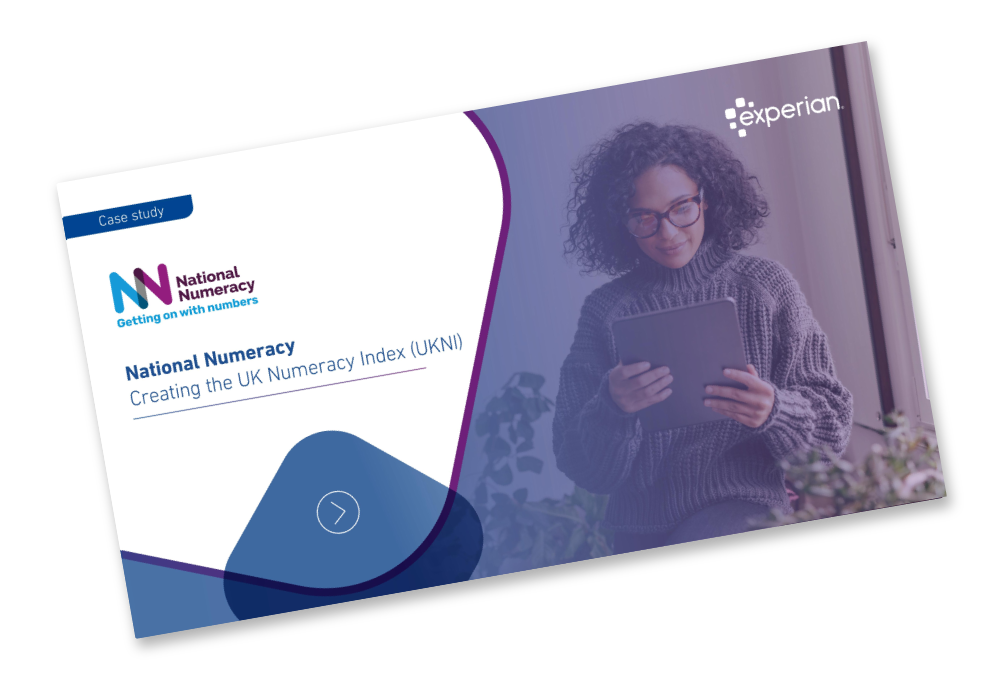Overview: Data for Good – Creating the UK Numeracy Index
Identify and help individuals improve financial literacy and numerical confidence through the UKNI
The UK has a significant problem with low numeracy skills; half the adult population possess the skills of an 11-year-old. Low numeracy costs the economy £25 billion annually* and is a key barrier to many from disadvantaged backgrounds climbing the socio-economic ladder.
Experian and National Numeracy partnered to create the UK Numeracy Index (UKNI), which models and ranks geographic areas by numeracy skills and confidence. The UKNI revealed a direct correlation between low numeracy and low social mobility and is being used to enact change by focusing improvement efforts and underpinning how local authorities’ access the £560M “Multiply” government programme.
*www.nationalnumeracy.org.uk/cost-outcomes-associated-low-levels-adult-numeracy-uk-2014

Challenge overview
Combining knowledge, expertise and datasets, the two companies set out to build the first UK Numeracy Index (UKNI) which models and ranks areas of the UK by (1) numeracy skills; and (2) numeracy confidence. The Index would reveal fresh insight into numeracy issues across ward, local authority and regional levels.
The ambition was to use this unique and valuable data for good to actively change people’s lives for the better; allowing policymakers, organisations and local communities to focus numeracy improvement efforts thus boosting social mobility and empowering people for positive change allowing better opportunities and brighter futures.
- Half the UK adult population possess the numeracy skills of an 11-year-old
- Low numeracy costs the economy £25 billion annually*
- A key barrier to many from disadvantaged backgrounds climbing the socio-economic ladder
National Numeracy was established as an independent charity in 2012 to help raise low levels of numeracy among both adults and children and to promote the importance of everyday maths skills.
The charity challenges negative attitudes, influences public policy and offers practical ways to help adults and children across the UK improve their numeracy to become confident and competent with using numbers and data, so that they can make good decisions in their daily lives.
| Company information: | |
| Founded: | 2012 |
| Number of employees: | 11-50 |
| Industry: | Non-profit Organisations |
Solution overview
The UKNI was created from numeracy data (confidence and skills) and several consumer attributes from Experian, including gender, affluence, age, and employment status. Experian used the email address provided when registering for the National Numeracy Challenge in an anonymous sample to match numeracy data.
Two numeracy models: confidence and skill, with an average score for each model calculated based on the number of households in each area. This allowed comparable areas of the UK to be ranked by percentile. A single UKNI from the models. The index has been made available via a public Tableau dashboard for ease of access and another more detailed version was published to be used by National Numeracy internally for further analysis.
- The UKNI was created to model and rank geographic areas by numeracy skills and confidence
- Used by approximately 50 local authorities to support understanding their numeracy landscape
- The insight is used to target interventions as part of the Government's £560M Numeracy initiative
Related Products
We have solutions we can tailor for your business needs
Speak to an expert





